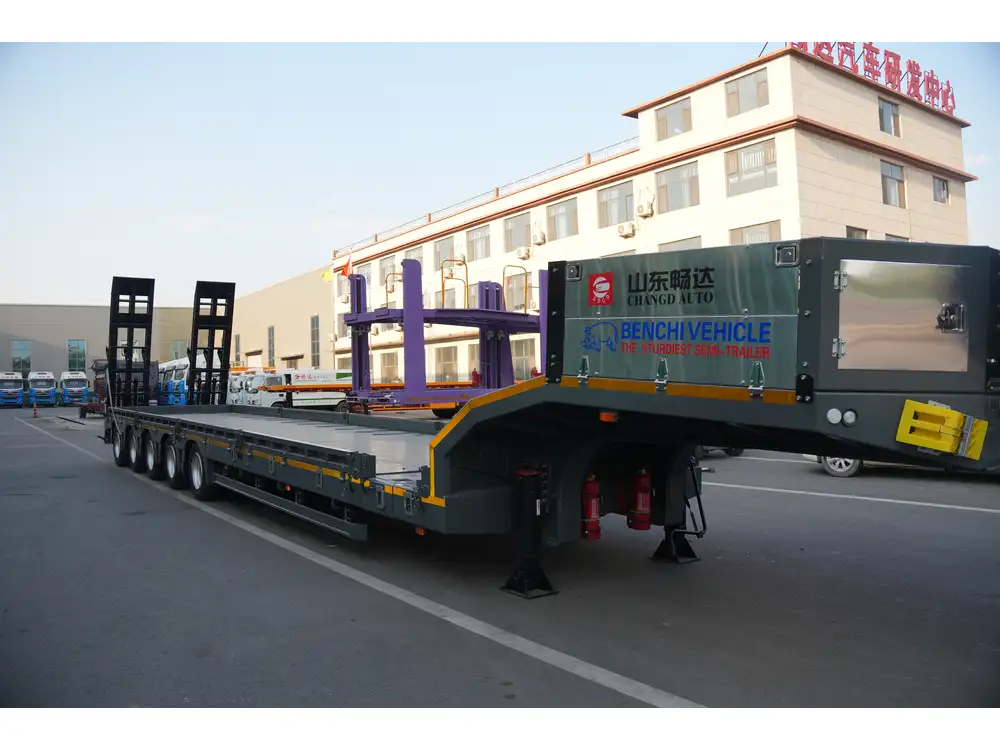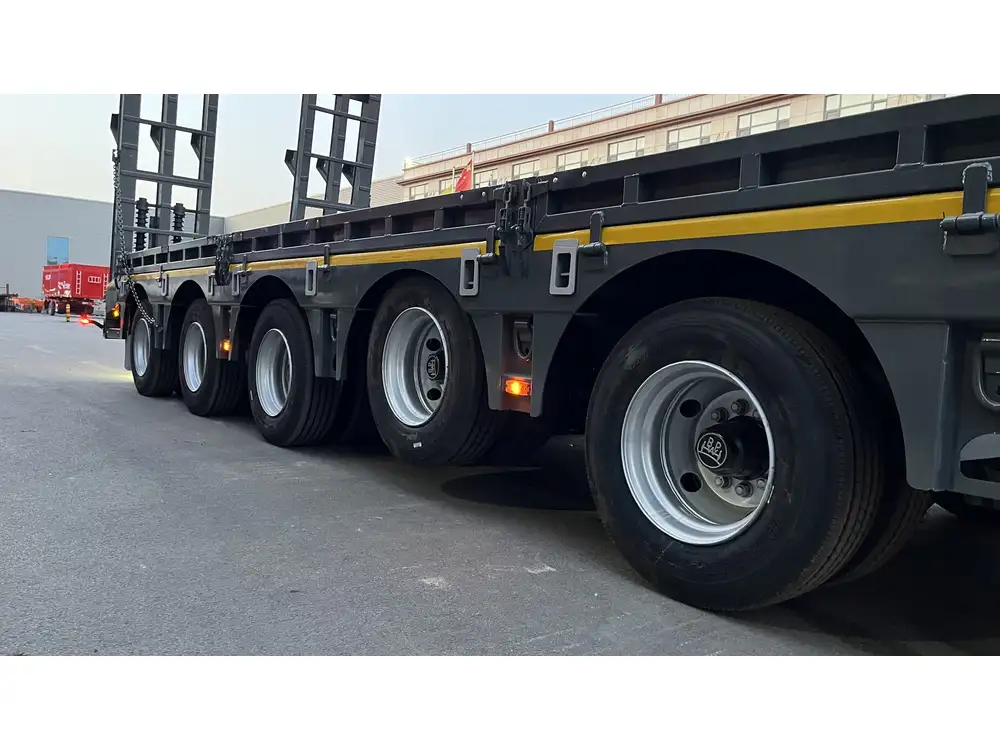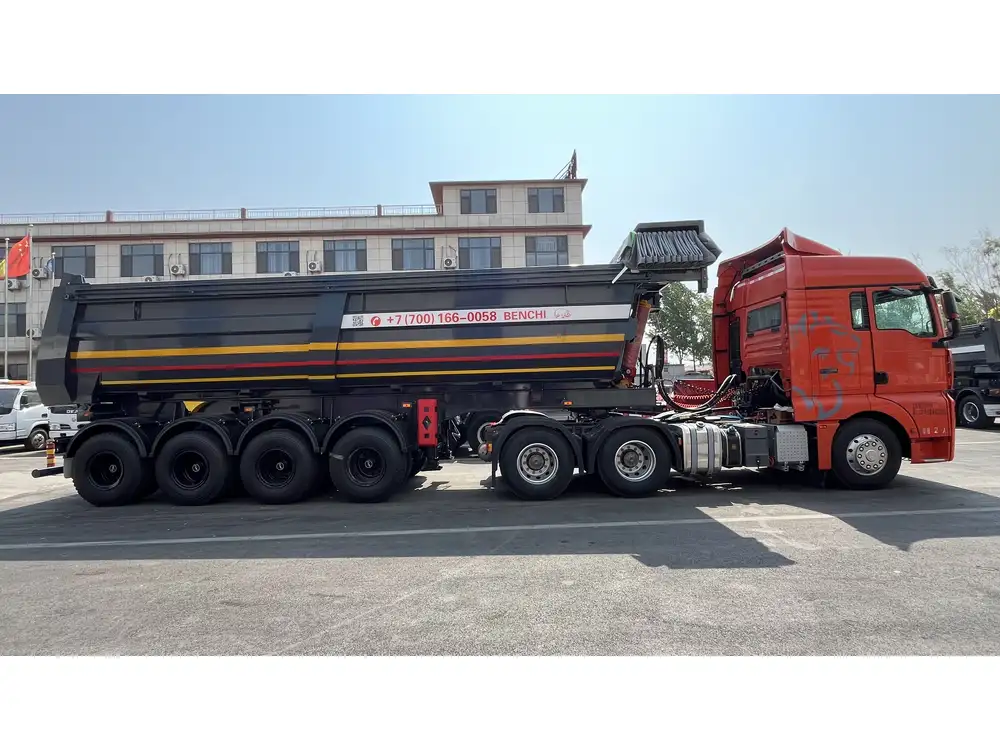In the world of logistics and transport, the equipment utilized plays a crucial role in the efficiency and effectiveness of operations. One piece of equipment that has gained respect and recognition in various industry sectors is the maxi flatbed trailer. This comprehensive guide will explore the full spectrum of what a maxi flatbed trailer is, its applications, advantages, and features that set it apart in the transportation realm.
Understanding the Maxi Flatbed Trailer
Definition
A maxi flatbed trailer is an open-deck, high-capacity trailer designed primarily for transporting large and heavy cargo. Its flatbed design allows for exceptionally versatile loading options, accommodating a wide array of goods from construction materials to machinery. Characterized by its length, which usually exceeds 48 feet, a maxi flatbed trailer is designed to support extensive weight loads, often exceeding 20,000 pounds.

Key Features
- Open Design: The flatbed structure facilitates easy loading and unloading from all sides, making it ideal for diverse products.
- Extended Length: Typically ranging from 48 to 53 feet, maxi flatbed trailers provide a larger deck space for transporting oversized loads.
- Weight Capacity: These trailers are engineered to handle heavier payloads, often up to 45,000 pounds when coupled with the appropriate tractor.
- Customization Options: Available in various configurations, features may include side rails, stake pockets, and tarpaulin covers.
Construction Specifications
| Specification | Details |
|---|---|
| Standard Length | 48-53 feet |
| Standard Width | 8.5 feet |
| Payload Capacity | Up to 45,000 pounds |
| Frame Material | Steel or aluminum |
| Axle Configuration | Tandem or tri-axle |
| Weight Distribution | Designed for balanced distribution |
Advantages of Using Maxi Flatbed Trailers
Maxi flatbed trailers offer a multitude of benefits that make them the preferred choice for many transport and logistics companies. Here are several notable advantages:

1. Versatility in Load Types
The open deck design allows maxi flatbeds to transport various types of cargo with ease, including:
- Construction Materials: Lumber, bricks, and steel beams.
- Heavy Machinery: Equipment such as excavators and bulldozers.
- Mobile Homes: Transporting pre-fabricated units for residential or commercial use.
2. Efficiency in Loading and Unloading
The ease of access to the deck allows for quicker loading and unloading processes:
- Forklift Accessibility: Loading from the side and back is straightforward.
- Crane Compatibility: Loads that require craning can be easily positioned.
3. Customization and Add-ons
Maxi flatbed trailers come with a host of customization options, including:
- Side Rails: Useful for securing loads.
- Tarpaulin Systems: Provide protection against weather elements.
- Toolboxes and Equipment: Added storage for tools and accessories.

4. Better Weight Distribution
With designs emphasizing low ground clearance, maxi flatbeds ensure optimal weight distribution, critical for road safety, especially when transporting heavy loads.
Common Applications
1. Construction Industry
The construction sector regularly utilizes maxi flatbed trailers due to their capability to carry bulky materials. This includes:
- Aggregates: Stone, sand, and gravel.
- Prefabricated Structures: Modular homes and commercial building components.

2. Agriculture
In agriculture, these trailers are beneficial for transporting:
- Machinery: Tractors and harvesters.
- Livestock: Large enough to accommodate cattle and other farm animals.
3. Logistics and Freight Transportation
Freight companies often opt for maxi flatbed trailers due to their:
- Load versatility: Handling irregular and oversized freight.
- Time efficiency: Facilitating rapid cargo movement across various distances.
Comparison with Other Trailer Types
When considering various trailer types for logistics needs, it’s vital to understand how maxi flatbed trailers stack up against other popular designs.
| Trailer Type | Maxi Flatbed Trailer | Enclosed Trailer | Lowboy Trailer |
|---|---|---|---|
| Design | Open deck for easy access | Fully enclosed for protection | Lower deck for transporting tall vehicles |
| Load Accessibility | Excellent, from sides and back | Limited, as access is usually through doors | Accessible only from ramps |
| Weight Capacity | Up to 45,000 pounds | Generally lower than maxi flatbeds | High, often up to 40,000 pounds |
| Best For | Versatile cargo, heavy machinery | Sensitive or valuable cargo | Oversized loads like cranes or construction equipment |

Important Considerations When Using Maxi Flatbed Trailers
Weight Regulations
Understanding local weight limit regulations is critical. Regulatory bodies often impose restrictions that affect the permissible weight on each axle.
Load Securing Techniques
Proper securing techniques are vital for transporting goods safely. Using methods such as:
- Straps and Chains: Essential for holding cargo in place.
- Tarps: Necessary for weather protection, especially in transit environments.

Maintenance and Inspection
Routine inspections and proactive maintenance help in prolonging the lifespan of maxi flatbed trailers:
- Brake Checks: Ensure optimal functionality.
- Tire Rotations: Discovering uneven wear can mitigate accidents.
Financial Aspects of Owning and Operating Maxi Flatbed Trailers
Cost Considerations
Prospective owners must take into account several financial factors when considering maxi flatbed trailers:
- Purchase Price: Generally ranges from $20,000 to $50,000 or more, depending on customizations.
- Insurance Costs: Essential to protect against damages and liability.
- Maintenance Expenses: Regular servicing can accumulate costs over time.

Rental vs. Purchase
For businesses uncertain about long-term investment, renting might be a beneficial option. This arrangement allows flexibility and reduces immediate financial burden while ascertaining the volume of transport needs.
Industry Trends Impacting Maxi Flatbed Trailers
Emerging Technologies
- Telematics Systems: Offering real-time tracking and diagnostics.
- Advanced Braking Systems: Enhancing safety and preventing accidents.

Sustainability Practices
The push for environmentally friendly logistics solutions has led to innovations in trailer design, focusing on weight reduction and improved aerodynamics. These advancements help to lower fuel consumption.
Conclusion
Maxi flatbed trailers serve as indispensable tools in the transportation sector, offering unparalleled versatility, efficiency, and capacity. As industries increasingly rely on such equipment to streamline their operations, understanding the full scope of what maxi flatbed trailers can offer proves vital. With their diverse applications, evolving technologies, and adaptability to various transport needs, maxi flatbed trailers remain at the forefront of logistics solutions, ready to meet the challenges of presently changing markets and demands.



